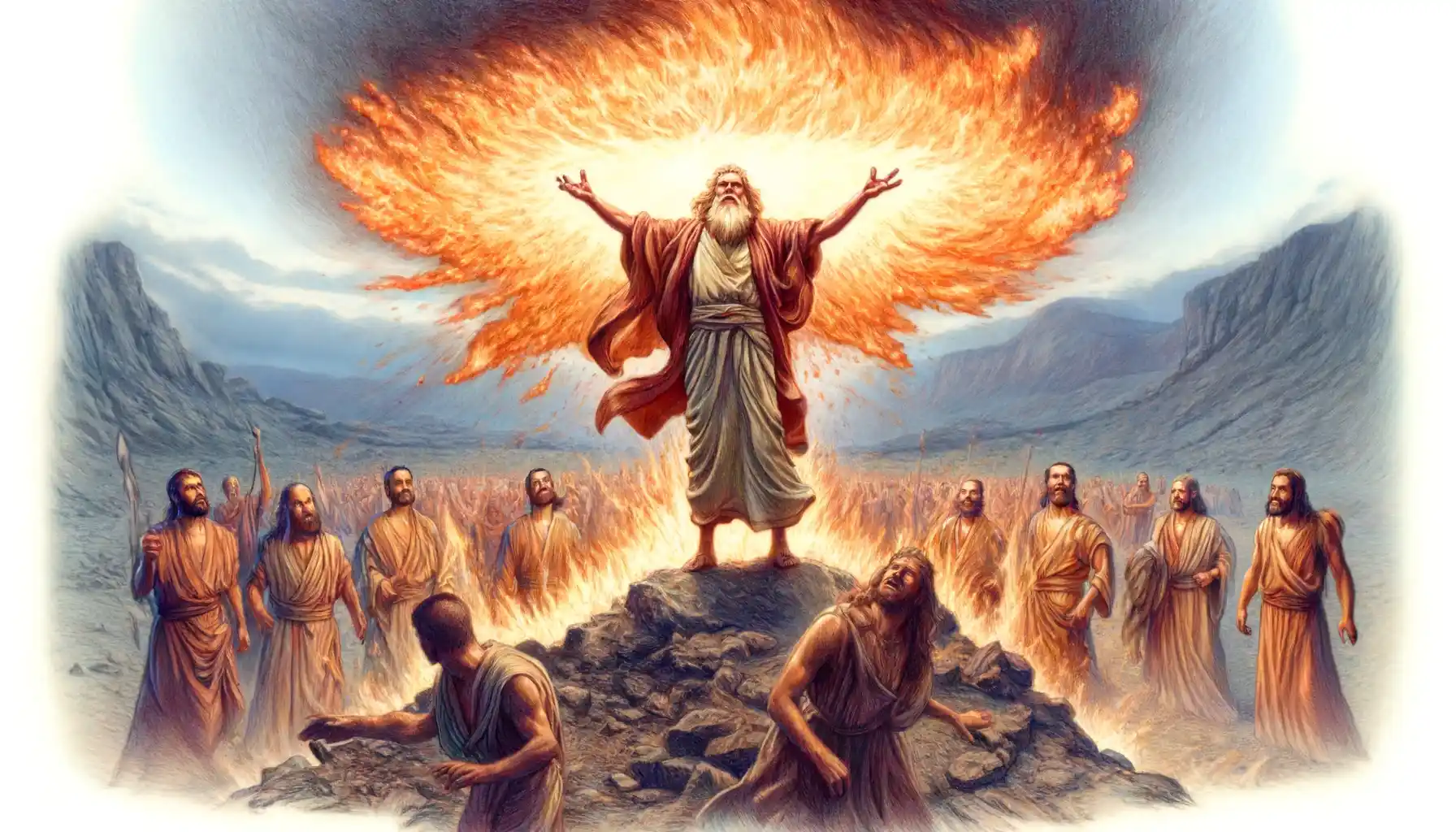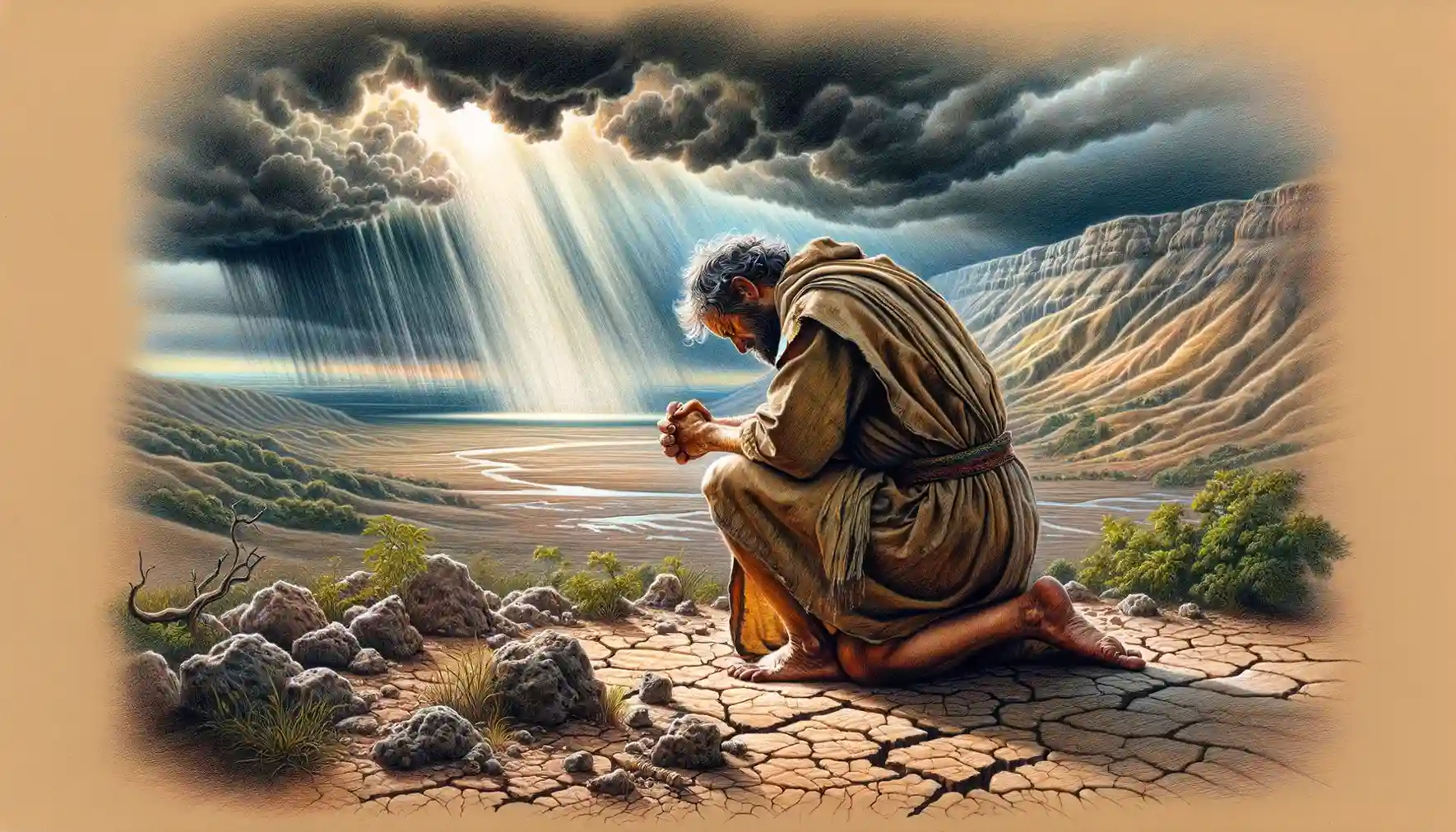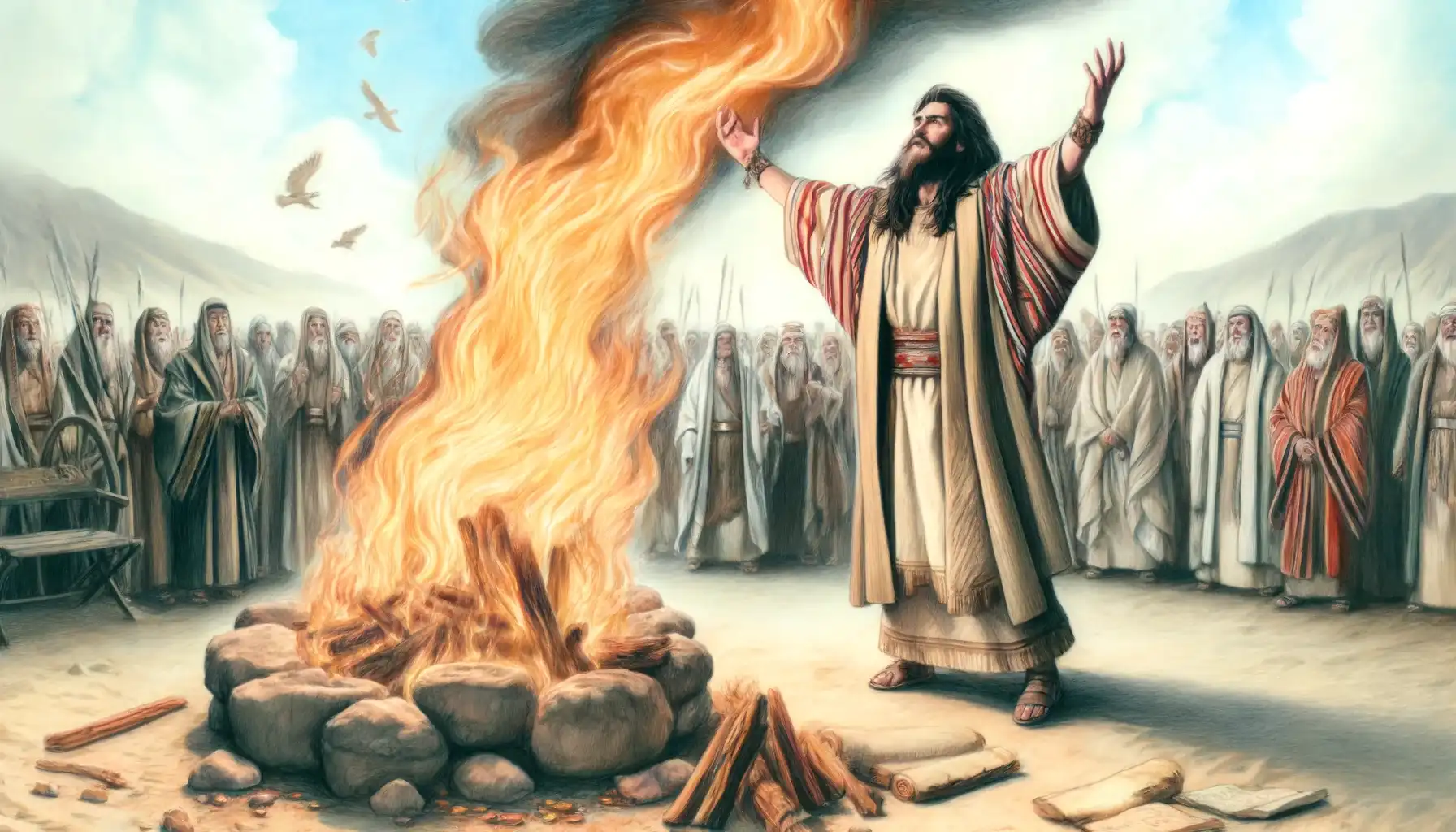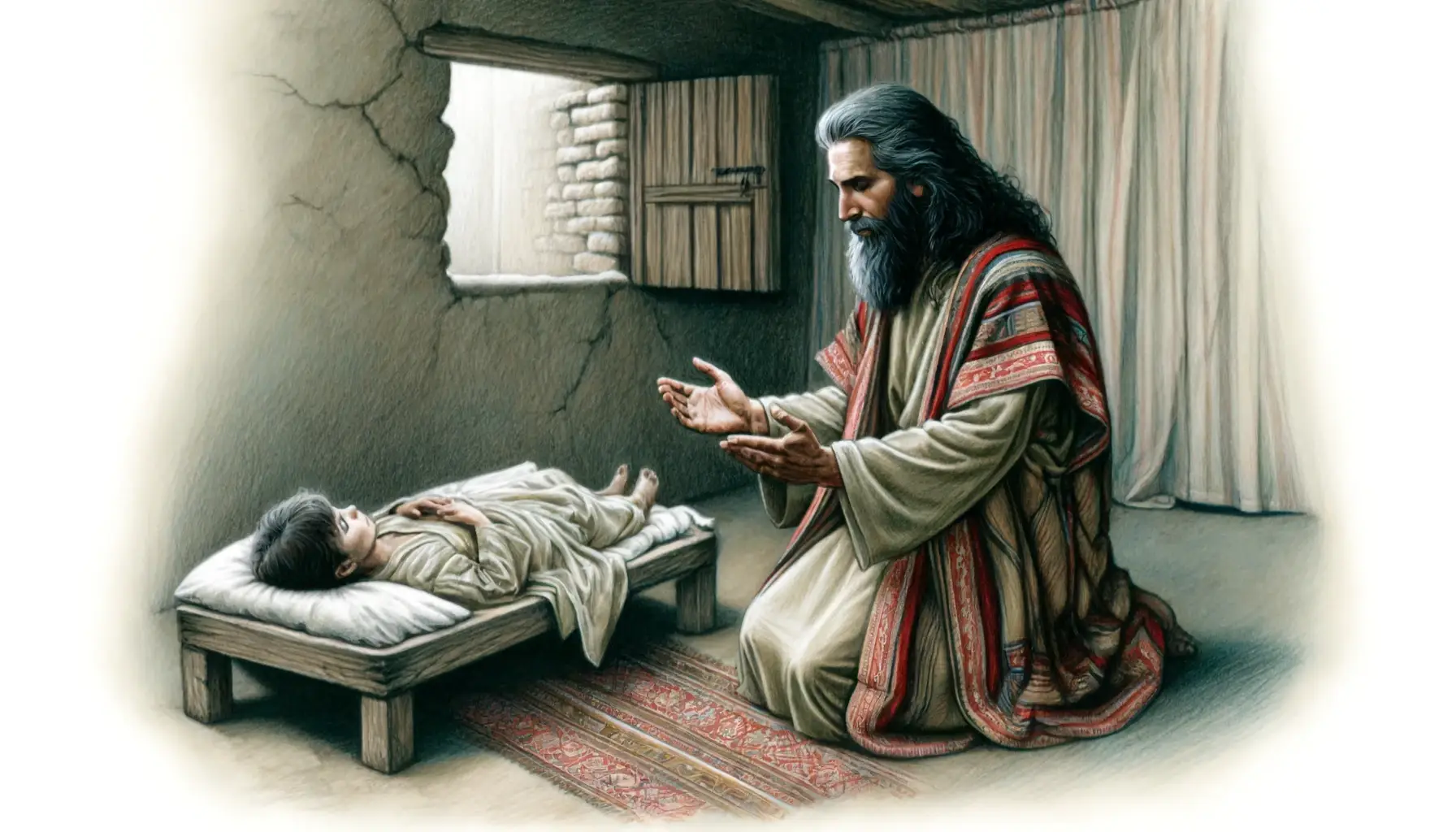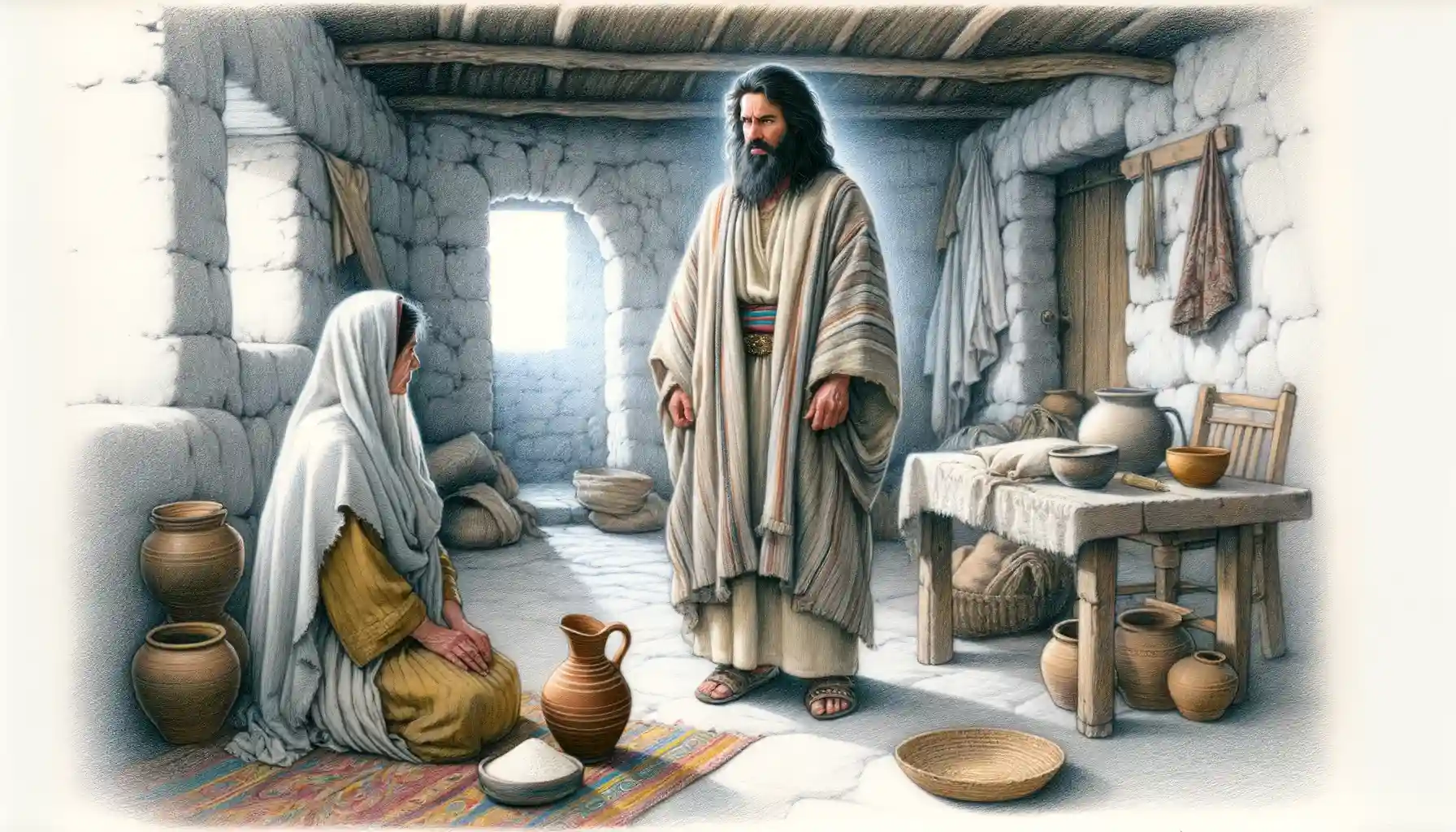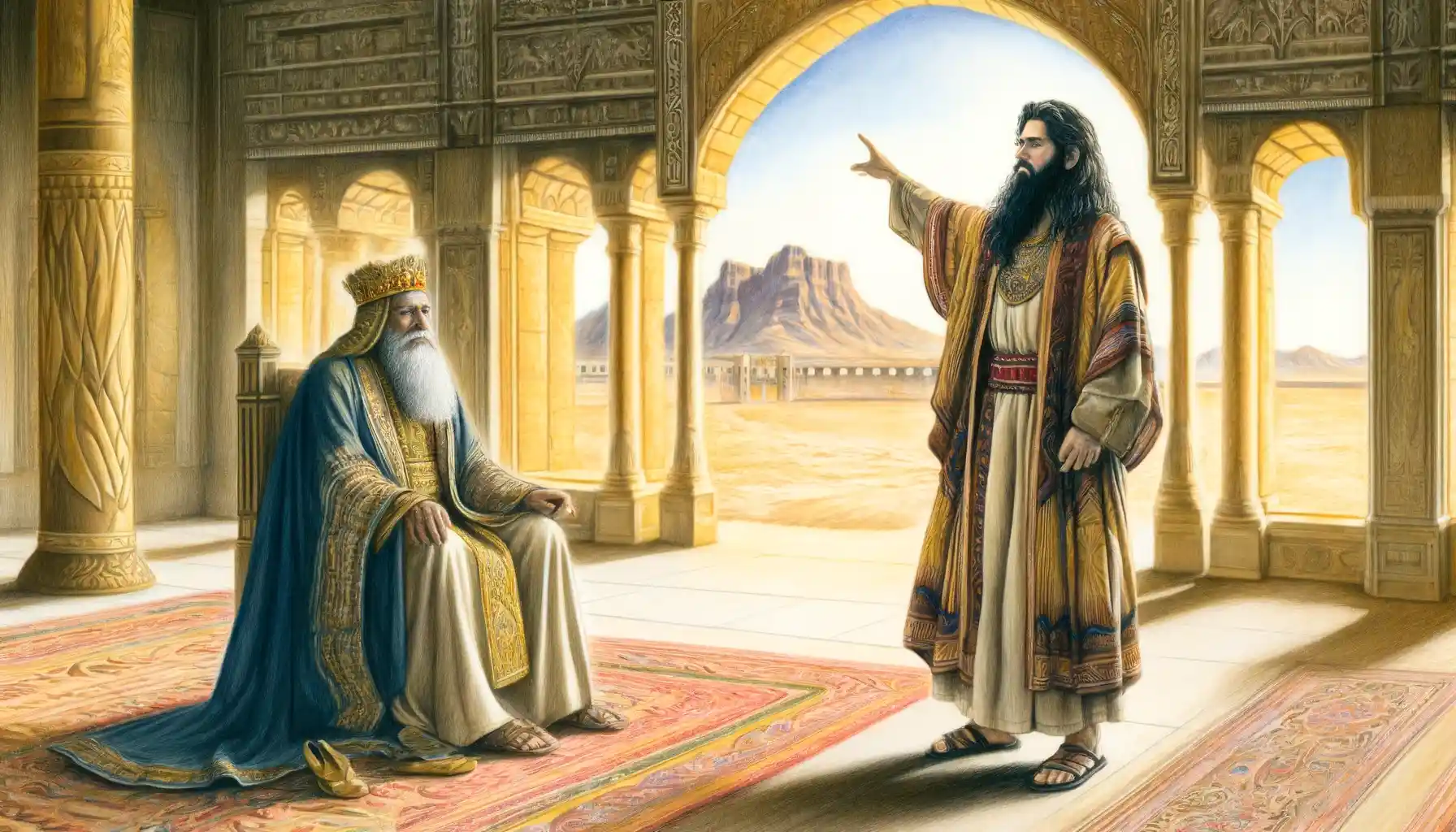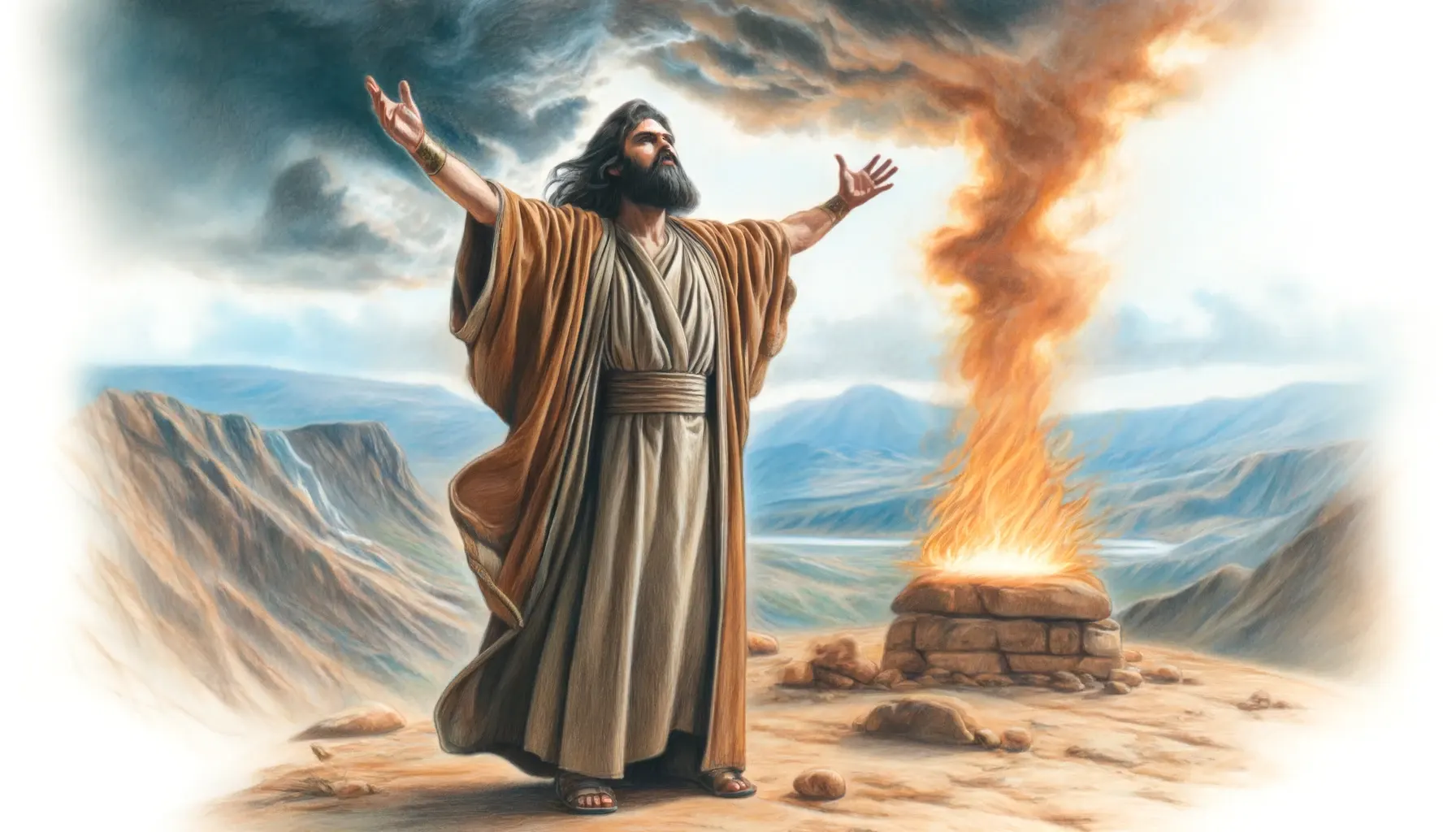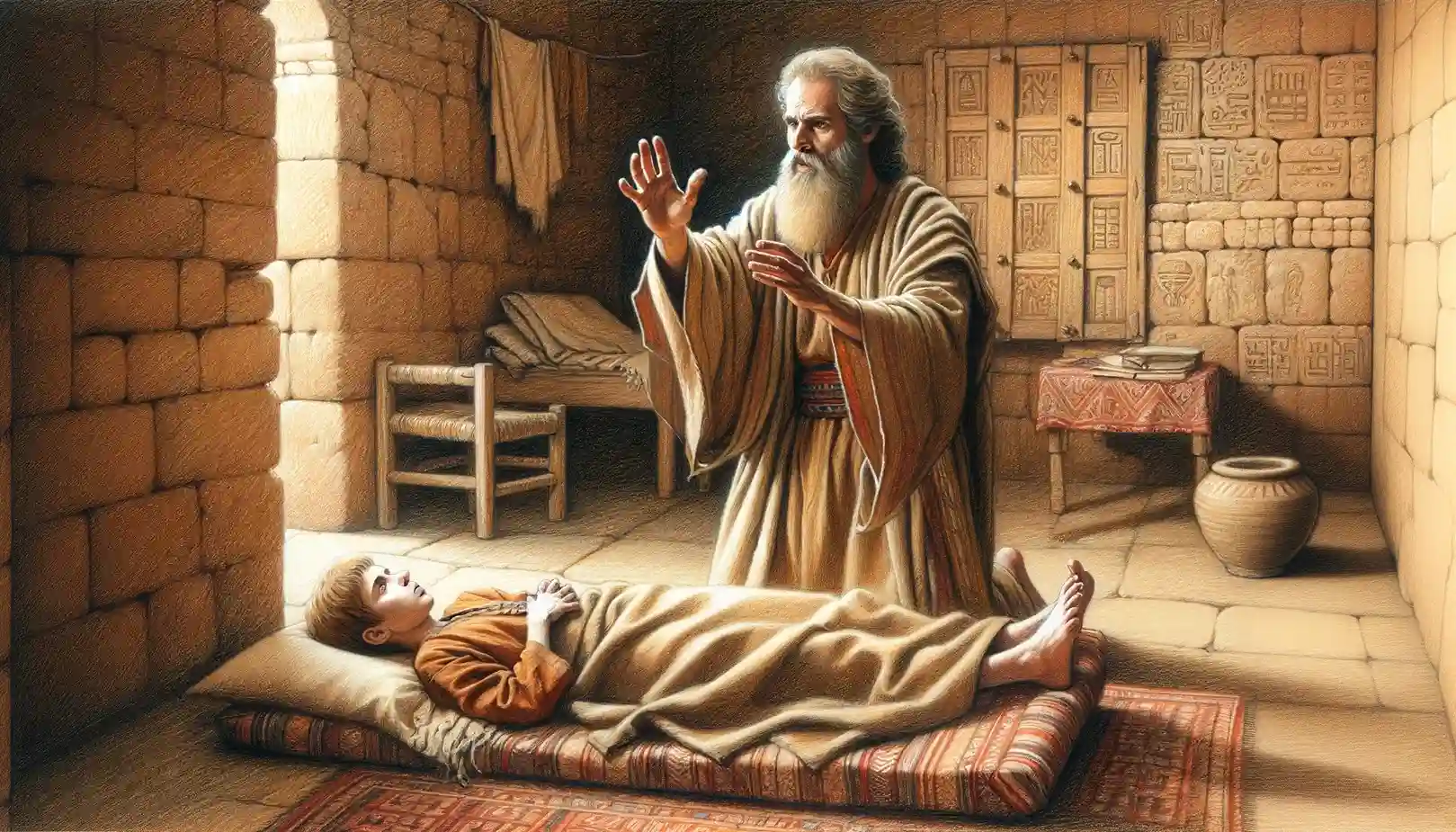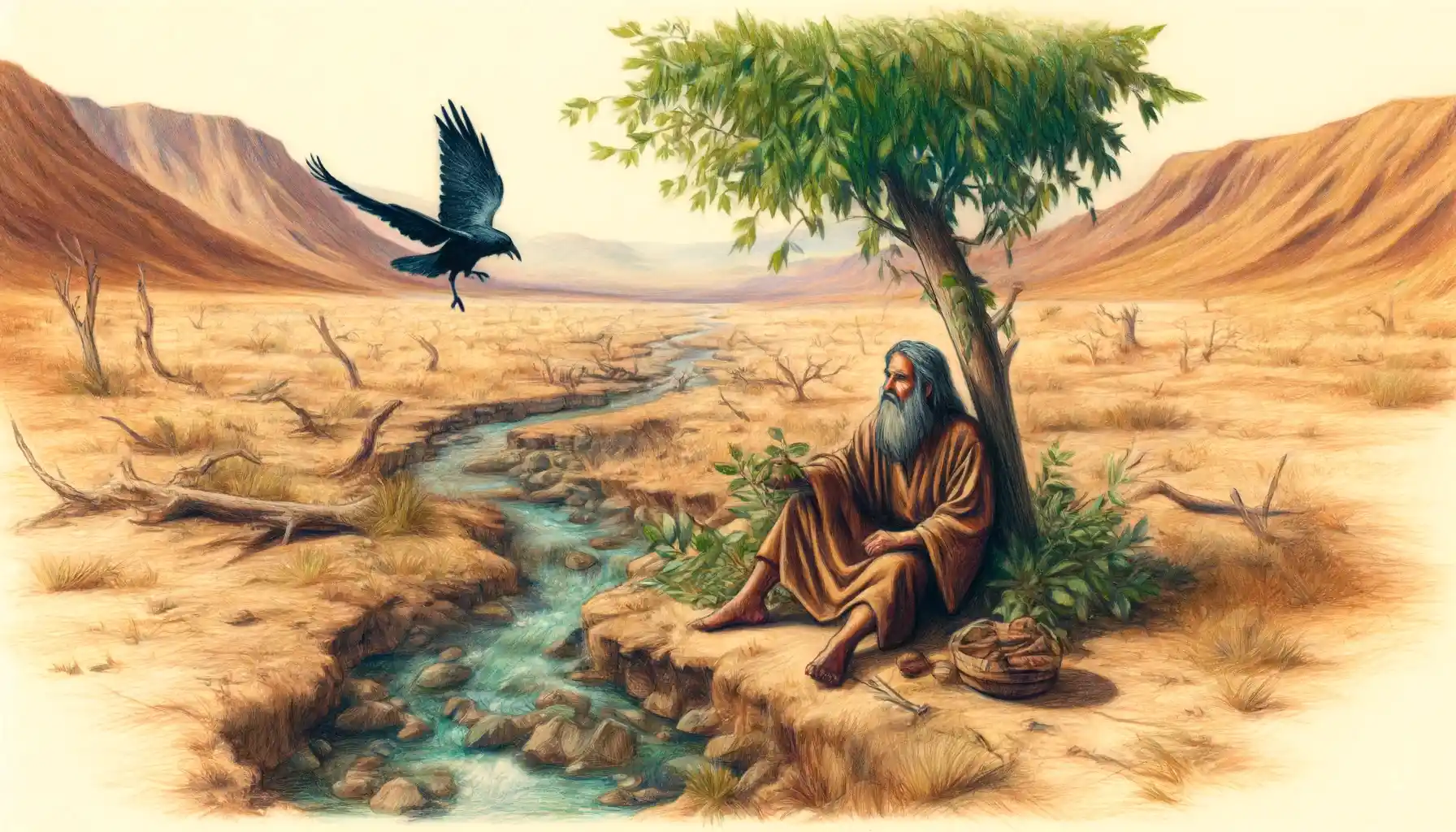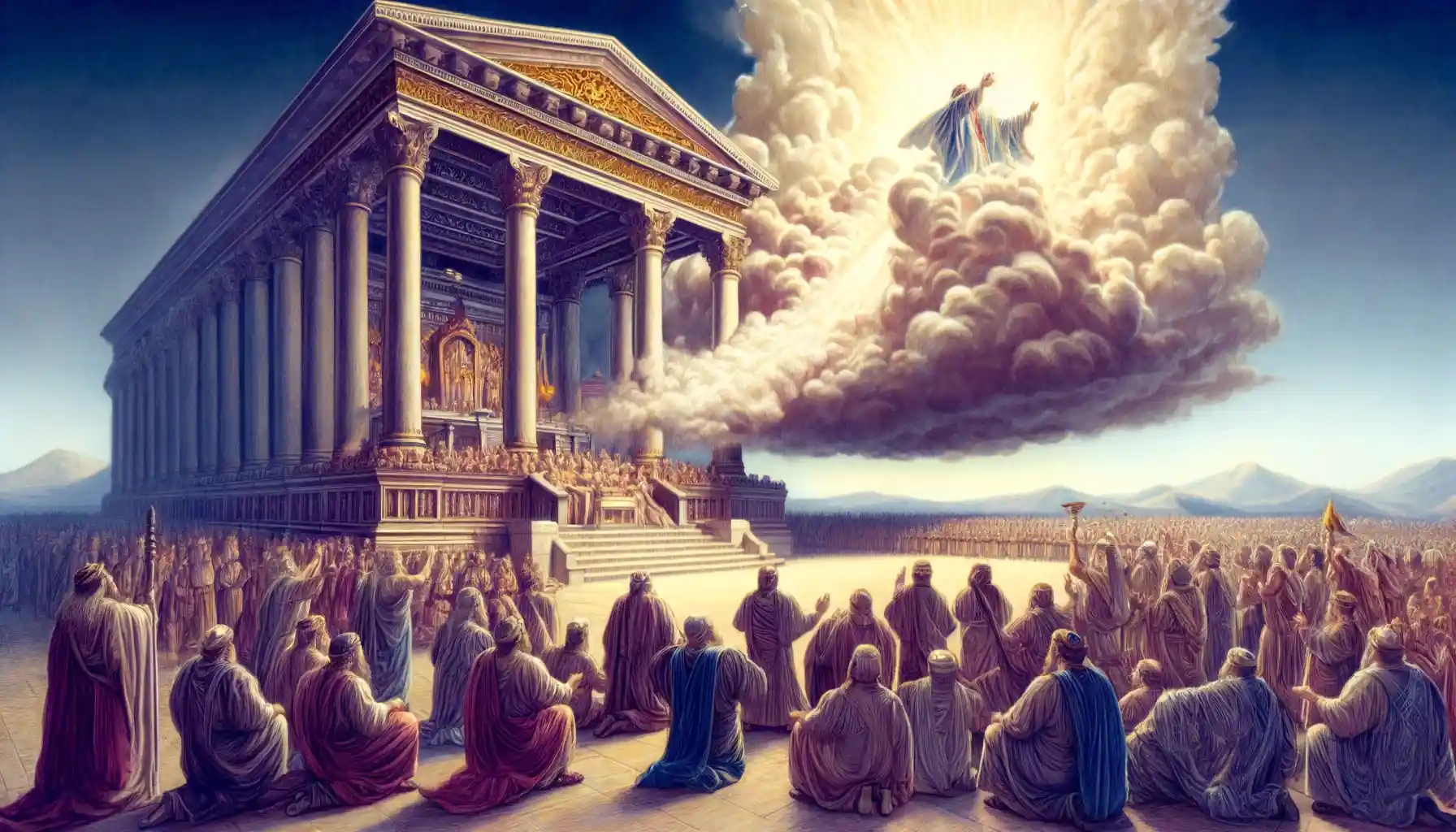In 2 Kings 1:10-12, the prophet Elijah calls down fire from heaven to consume two groups of fifty soldiers sent by King Ahaziah to apprehend him, dramatically illustrating God’s supreme power and authority, and serving as a divine rebuke against the king’s idolatry and challenge to prophetic authority.
The account of Elijah praying for rain after a three-year drought, as depicted in 1 Kings 18:41-45, vividly demonstrates God’s sovereignty over natural phenomena and underscores the efficacy of faithful prayer, showing how God responded to Elijah’s earnest intercession by ending the severe drought with a significant rainfall, thereby affirming His supremacy over the idolatrous worship of Baal.
In the dramatic episode on Mount Carmel, as detailed in 1 Kings 18:36-38, Elijah calls down fire from heaven to consume a water-drenched sacrificial offering, decisively demonstrating Yahweh’s supremacy over Baal and significantly impacting Israel’s religious landscape by reaffirming monotheistic worship and the authority of God’s prophetic messenger.
In the narrative of 1 Kings 17:17-24, Elijah raises the widow’s son from the dead in Zarephath, showcasing God’s supreme power over life and death, and reinforcing the prophet’s authority as a true messenger of Yahweh, thereby deepening the widow’s faith and illustrating the reach of God’s miraculous intervention beyond Israel.
During a severe drought, Elijah miraculously provides a widow in Zarephath with a continuous supply of flour and oil, as recorded in 1 Kings 17:14-16, demonstrating God’s unwavering provision and the profound faith of those who trust in His promises.
Elijah’s announcement of a multi-year drought in 1 Kings 17:1 serves as a divine judgment against Israel’s idolatry, directly challenging the worship of Baal and asserting Yahweh’s supreme control over the weather and the fertility of the land.
Elijah, a defining prophet in the Hebrew Bible, is celebrated for his unwavering dedication to God, most notably demonstrated through his dramatic confrontation with the prophets of Baal on Mount Carmel, where he proved God’s supreme power by calling down fire from heaven.
In 1 Kings 17:22, the miraculous resurrection of the widow’s son by Elijah not only showcases God’s sovereign power over life and death but also reaffirms Elijah’s prophetic authority and deepens the widow’s faith in the true God.
In 1 Kings 17:4-6, God miraculously sustains the prophet Elijah during a severe drought by commanding ravens to deliver him bread and meat twice daily while he remains hidden beside the Brook Cherith.
2 Chronicles thus acts as a mirror reflecting the spiritual health of Judah through its leaders, offering lessons on the importance of righteous leadership and fidelity to divine commands.

